New Year's Resolutions
We already go to the gym, and last year we lost more weight than the entire congregation of the Church of Atkins, but if any developers are looking for some possible resolutions, here's a few they might consider trying on...

So what's it to be? Are you joining the gym? Cutting out spirits? Red wine? Red meat? Giving up smoking? Spending more time with the family? Getting your finances in order? With 2005 now a partially-mutilated-handful of days old, you must have some idea by now of your New Year's Resolutions. We've done ours. Pillars of clean living that we are, inevitably our resolutions mostly concern the hording of various different forms of media, and indulging ourselves excessively. "Spend more time playing non-work games," is one, "Buy more CDs," is another, and "Read more books," is one we're forcing on ironically named editor-o-matic Kristan Reed. And we're all trying to cut down on our four-letter tirades and the victimisation of breakable inanimate objects when things go awry on the review trail, too...
But we do recognise it's not easy. Most resolvers will pick something simple and hard-to-quantify, like "I'm giving up chocolate," - easily deserted in the face of some manner of private rendezvous with a dark-topped éclair or someone's last Rolo. Or they'll just fail miserably, consoling themselves with all the other Rolos and probably taking up smoking and buying mountains of reduced-price TV show DVD box sets in the January sales. "Blake's 7 for 15 quid? That'll make up for my failure to give up turning on the TV and watching football when my girlfriend is talking directly to me about how she's pregnant and how we need to cancel the holiday to Spain and save up for a cot instead." Specialised case, admittedly, but you get the picture.
However, for those of you working in the games industry, toiling away on next Christmas's blockbusters or running around tapping the side of your nose in a "So I'm making a next-generation game... Yeah I can't talk about it," kind of way... we're here with a few suggestions. Having spent quite a lot of time over the Christmas period investing ourselves in unfinished games, we've waited through enough loading sequences and reloaded and replayed our way through enough of the same sections post-unfair-death to have had plenty of time to consider what, on an extremely fundamental level, a lot of modern games still don't get right. And so as we all return to work, we'd like to offer this list of possible New Year's Resolutions for our beloved developer-friends, who bring us so much joy each and every day for so little return.
Now folks, we're not asking for you to fire your sound directors and kidnap John Williams or anything like that. We're just keen to see you iron out the kinks and ease our paths into your worlds by applying some common sense. So have a read, and see if we're not making a little sense. If we haven't blinded ourselves through drink, drugs and Driver 3 by January 4th 2006, we'll try and remember to look back and see who's taken notice. And we'll happily pay for a bottle of champers for the team who gets it most right in 2005...
"I will make better menu systems."
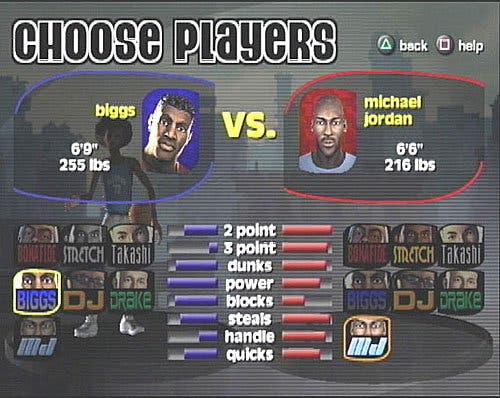
It might sound like a silly thing to get het up about, but over the years we've had to put up with a rapid decline in the quality and usability of game menus, to such an extent that these days the level of functionality in and out-of game is woefully inconsistent, the menu itself is wreathed in flame and doing handstands whilst singing HMS Pinafore through a Vocoder, and takes a noticeably longer time to react to simple D-pad movements, and even navigation is an alarming bind. A couple of simple ways to combat this:
Be consistent. If you can invert view controls, turn audio/visual functionality, auto-saving and whatever else on and off in a game's main options menu, then you should be able to do so from within the game world just as easily. Having to continually quit out and restart when you first start playing a new game because you can't quite get the sensitivity or brightness right is stupid, particularly if you have to sit through the same scene-setting opening sequence every time you get to a playable bit and discover things are bollocksed.
And, for that matter, don't confuse the very basic issue of moving through menu screens unchallenged. Half the time it's a battle to remember which button to press. X means forward, circle means back. No, wait, Start means forward, square means back. Nope, sorry, circle is forward, triangle is back. But, ah, Start is affirmative in some cases. Oh bollocks, we're meant to use L and R to tab. And on it goes. For all the console platform holders' strict technical restrictions and guidelines, this is one area that seems to be sadly overlooked in many cases. And the discrepancy between menu button behaviour internationally smacks of inter-departmental oneup-manship. We're looking at you, Sony.
Next: Be conservative. There's no need for a menu to have a load time associated with it. If the process of toggling invert-aim involves negotiating a dazzling firework display with dancing ladies whose very tears of joy represent function-buttons, you've gone too far. A decent 2D artist with a bit of imagination could have a similarly spell-binding and far less garish background image done in almost no time, and overlaid with some readable text it would serve much the same function demanding only a fraction of technical wizardry - and critically very little in the way of delay - to load.
Give us some of that, and give us toggle-able menu sound effects too, and we'll love you forever.
"I will give gamers more choice over how they control our games."
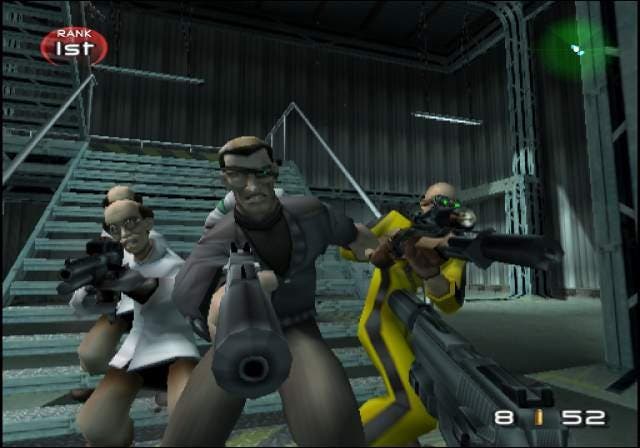
We've had analogue controllers, shoulder buttons, keyboard-and-mouse combos and even more obscure peripherals for many, many years now (the fishing rod, anyone?), yet it seems nary a week goes by that we aren't forced to bring someone to task for not giving us enough control of the in-game camera, or putting important functions in odd positions, or just not putting something as fundamentally important as the analogue control stick to proper use. We're not asking for a revolution, or a unified standard of control, but we would have thought that a bit of common sense and a bit of observation when it comes to successes elsewhere in the same genre would steer many a game through the seemingly murky waters of control issues unscathed.
Console first-person shooters are a very obvious trouble spot, and given every publisher in the world's predilection for tapping the genre excessively they would seem like a good example upon which to focus our suggestions. The PC got it right a long time ago here, and nobody's really settled on a preferred standard for handling control on a console control pad, so why tie yourself to just one option? Give us the choice. Allow for the use of USB keyboards and mice [for the love of God - how hard can it be? -Ed]. Allow us to swap the analogue stick functions over. Allow us to invert both X and Y axis for games that switch between first and third-person view, and let us do it in-game, too. Allow us to re-map controls. Allow us to adjust the sensitivity and even acceleration of the analogue sticks as we move them away from the centre point.
And above all pay attention to what has worked in the genre. Bungie's Halo and Free Radical Design's TimeSplitters games have effectively nailed things in many regards. FRD in particular gives us solid and adjustable general camera movement, where firing normally sprays bullets but works just as well as any other game, but the developer also allows us to zoom ever so slightly and achieve much greater accuracy within a small aiming window. A former flatmate once memorably likened it to the difference between digital and optical zoom on a camera. But however you analogise it, it's extremely effective, and when we regularly have to wrap our thumbs around games like Men of Valor that don't get this right, we're left to wonder why.
We know you're not all developing first-person shooters, but much of the logic transcends. Pay attention to what already works, learn from it, and give us the chance to customise the way we play and your games will stand a much better chance of surviving the first half-hour post-purchase, and will certainly fair a bit better in the world of game rentals. And given how many reviewers seem to be on new-membership commission at Blockbuster Video judging by the amount of rental recommendations we see each month, a few more configuration options mightn't go amiss. The same applies to many other things - third-person cameras, for one, could perhaps let us choose whether we want free control, fixed perspective, fixed-behind-the-player, or fixed-at-a-distance ala Prince of Persia's "zoom-out-cam".
"I will use the pad properly, and stop trying to jam it through a round hole."
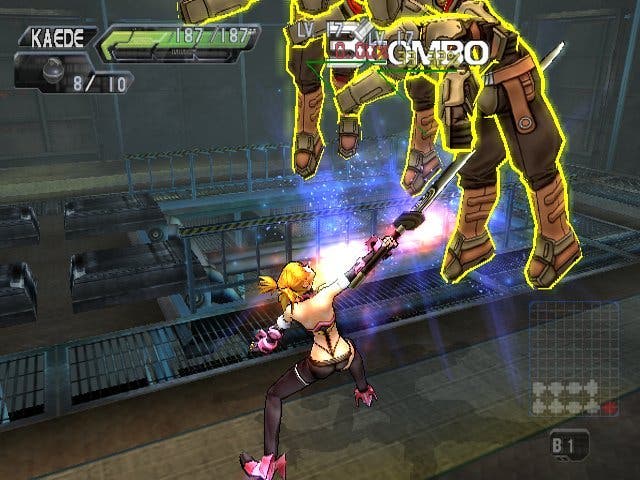
Of course, it's only a short stepping-stone between these sorts of respectable control adjustments and the total abandonment of the heinous and RSI-inducing L3 and R3 "click in" buttons (binding "crouch" to either of which, for reference, is incomparably wrong - hello Rockstar, circa Vice City), and a worldwide treaty signed by all pledging never to treat an analogue stick like a digital D-pad. To think, within a few years we could live in a world where your avatar-of-the-week doesn't go from tiptoeing to full-on-sprinting when your left thumb stick edges halfway out from the centre...
But even if that sort of thing is a bit of a pipe dream (we once saw L3 bound to "jump". On occasion we still wake up in the dead of night thinking about it), one area where change cannot be too hard to affect has to be the area of pad-based text input systems. We've seen all sorts. Some games give you an on-screen QWERTY keyboard, some opt for A to Z, some a mobile phone-style affair where you have to press the same button several times to get to your chosen letter (we're still waiting for predictive text to turn up - following The Fall of Max Payne not too long ago, it'll probably be here in time for May Payme 3), while others still have you scrolling through a list of letters.
We don't have a definite answer here. Clearly, no one does. But we do, through our vast experience playing virtually every major game of the past few years between us, know which game got it most right, and that has to be Ubisoft's Beyond Good & Evil. Michel Ancel's phenomenal adventure got a lot right, but having the alphabet arranged in a spiral configuration and using the analogue stick to pick letters (with a simple distribution of backspace, enter, shift and so on to shoulder buttons) ironically stuck in our minds on the same level as many of the game's pivotal moments. It's an approach we've yet to see replicated or vaguely channelled, let alone bettered. Did nobody play Beyond Good & Evil?
"I will let the player record his or her achievements and stop pulling the rug out from under them ten seconds before they get the chance to do so."
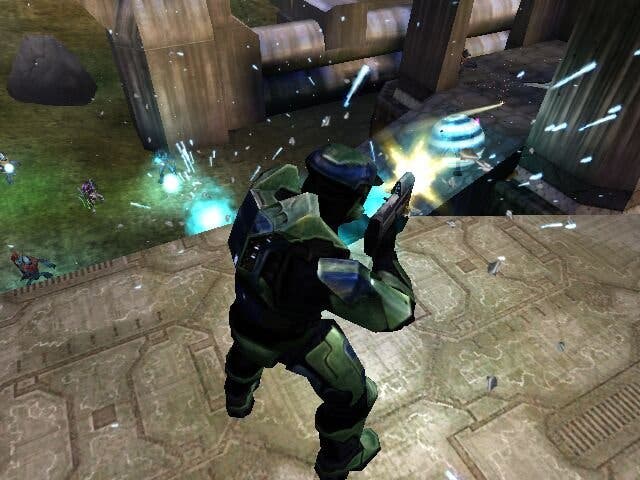
Checkpoint save systems are not the future; we had them in the early 90s for Pete's sake. So quite why so few people use them is a mystery. Between-level saves are fine for some people, but these days others of us want to be able to complete games without having to replay vast tracts of the same section, something that's particularly true in this era of more narrative-driven undertakings. Obviously surreal and reaction-based 2D platformers and scrolling shooters are one thing, but when you're involved in a battle with real characters and goals, it's hard to feel like you're part of anything other than an ill-judged Groundhog Day sequel when you have to keep going through the same motions over and over again. So why not learn from what Half-Life, Halo and countless other games have been doing and actually record progress with silent, unobtrusive regularity?
If you want to retain the opportunity for ritualistic self-flagellation at the hands of a draconian save structure, then by all means do so; we're open-minded enough to understand the base arcade attraction of having 20 minutes of work callously undone by a clipping issue or something [or just some heinous level design, in the case of the some murderously unfair missions in San Andreas -Ed]. But make it an option. Give us special incentives to try it the harder way. Find a middle ground. You won't just win the hearts of reviewers trying to break down the pile and move onto the next target; you'll also be making your games more inclusive, and if the industry wants to live up to this "bigger than Hollywood" myth the bigwigs bandy around then a bit of compromise and variety is clearly going to help people adjust.
Whatever you do though, if you're doing it on a console then don't use up a whole memory card to do it. Peripheral sales are enough of a shakedown anyway.
"I will placate those of you with big-screen televisions and surround sound speakers, even though I'm forced to do my test-play on a modified digital egg-timer..."
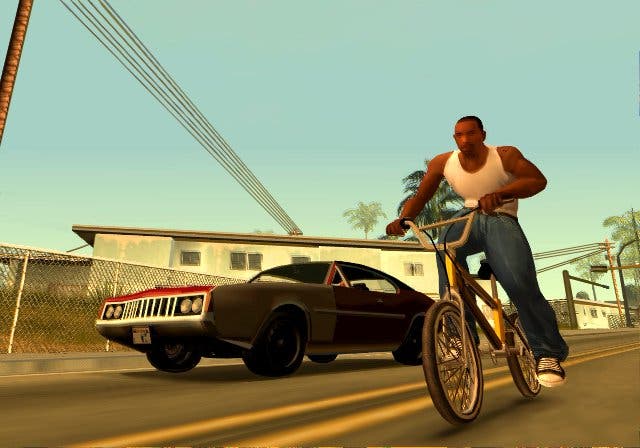
Developers are starting to realise the importance of 60Hz options to many gamers (Capcom in particular should be singled out for its record in this department, which has more or less expunged any memory of its bordered travesties of yesteryear), but widescreen and surround sound are still ignored by most. Even Asda sells widescreen surround-y televisions these days, and even my mother has one, so perhaps it's time to cement the inclusion of these options once and for all? Consistently do so and people will genuinely take it into consideration. A small example: this writer's unfinished games pile for the Christmas break was, in fact, prioritised in terms of widescreen support. We're massive geeks, naturally, but why not set a good example and be on the vanguard of something positive? Heck, it might make it easier to forget the malfunctioning camera if you can see more on either side...
On the higher end, progressive scan support is starting to emerge as something that gamers really take notice of, particularly in the USA, and there are several well-read websites out there now dedicated solely to documenting which games support which modes. Admittedly only a fraction of us here in Europe can take advantage of prog-scan at the moment, so we're not calling for widespread adoption [I am! -riled Ed], but we'd very much like to see games that are making the transition from the US retain their prog-scan options. We'd also plead with Microsoft to unlock prog-scan on European Xboxes. We've seen chipped PAL Xboxes running import games at 480p right up to 1080i (which, for those who don't know, is "ridiculously high resolution" as opposed to "high resolution"), and even the PAL versions demonstrably have the actual functionality locked away in them in many cases, so what exactly is the problem here? Surely the rich bastards with loads of disposable income and outrageous A/V set-ups are a good group to waste a few weeks programming a bit extra for?
"I will work harder to respect people's boundaries."
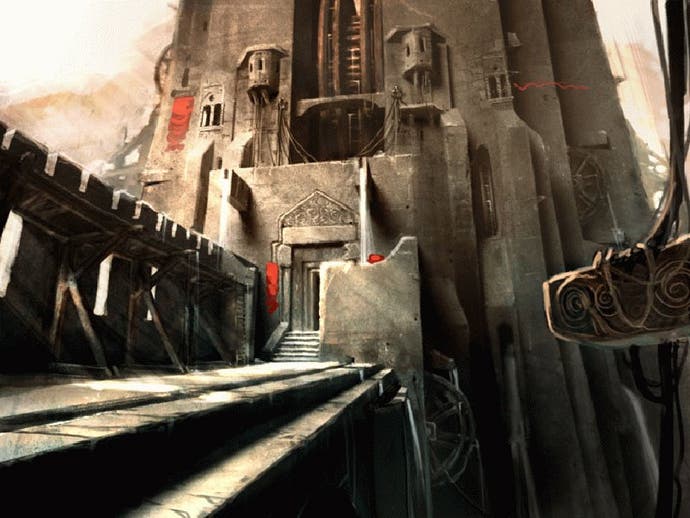
We mean that in all sorts of ways, but don't worry; this isn't about to descend into the realms of a moral debate or anything like that. We're more concerned about basic errors of judgement and errors of construction that often conspire to yank us out of the game world and cut whatever flimsy tether was managing to suspend our disbelief in the first place. And, on the flipside, we're concerned about inadequate provision for people who don't want to be your main Mr. So-and-so, and would rather move between the button-bashing bits unbothered by feeble motivational CG pep talks from virtual Cheshire Cats.
For those of us who want to feel like we're really there, the need to respect boundaries is literal. We don't mind games that opt for a smooth 30 frames per second in order to look good, but games that regularly threaten to drop into single-figure frame rates or force us to watch objects appear out of thin air ten feet in front of us are putting our sense of involvement under serious strain. And surely nothing cuts through the cord suspending our disbelief with greater ease than the twin ills of having an invisible border around the 'play area' or watching something solid pierce something else which ought to be solid and emerge on the other side, and watching projectiles visibly connect [with the middle of someone's face, for crying out loud -Ed] but do nothing due to inconsistencies in the areas that register contact.
And, as this winter's disappointing Prince of Persia follow-up surely proved, concept art has no place in a game world - and using its discovery to extend game life is neither a convincing carrot for completists nor a sensible way of drawing out an adventure series whose sales are at least partly predicated on a sense of emotional involvement with the characters and universe... Unless it comes back to that recurring issue of choice. Having a toggle that said "Yes, I want to have the option of searching for hidden treasures," would certainly have improved matters, and wouldn't have left us feeling so battered and betrayed when we finally made it past five sentries and a corridor gauntlet only to discover the way we thought was the way forward was actually a holding cell for discarded chicken-scratch visions of what the main character was once upon a time going to look like. Respect our boundaries. Respect your own worlds. And we'll love you for it.
"I will let the player skip cut-scenes."
As Pat would have it: Seriously.
"I will stop visiting Eurogamer if you don't shut up."
At the end of the day, dev-folks, it's up to you to decide what's best for your games, and we respect that. We know that there are plenty of you out there fighting the good fight, standing on boardrooms tables jabbing life-size cardboard cutouts of Frodo Baggins at flailing executive-hands whilst preaching the virtues of including sound options on the in-game pause menu. For those of you who have perhaps forgotten just how simple, easy and all-inclusive things can be without compromising creativity or that central vision of the design, we hope our silly little list has been of some use. Be sure to let us know what you think, and readers and devs alike shouldn't hesitate to use our comments system to put forth other considerations. You'd be surprised just who and how many will hear what you have to say...
Oh, and yes, for the record, we'll be sure to pay ourselves the same level of critical attention when it comes to revamping Eurogamer later this year. We are in fact acutely aware that the only reason the glasshouse this little piece of banter is sheltering in hasn't been stoned yet is that there's no article-index page for you all to aim at. Be strong. Together we can make 2005 the year we all got the basics right.
We've got a good feeling about it anyway. Over to you.

